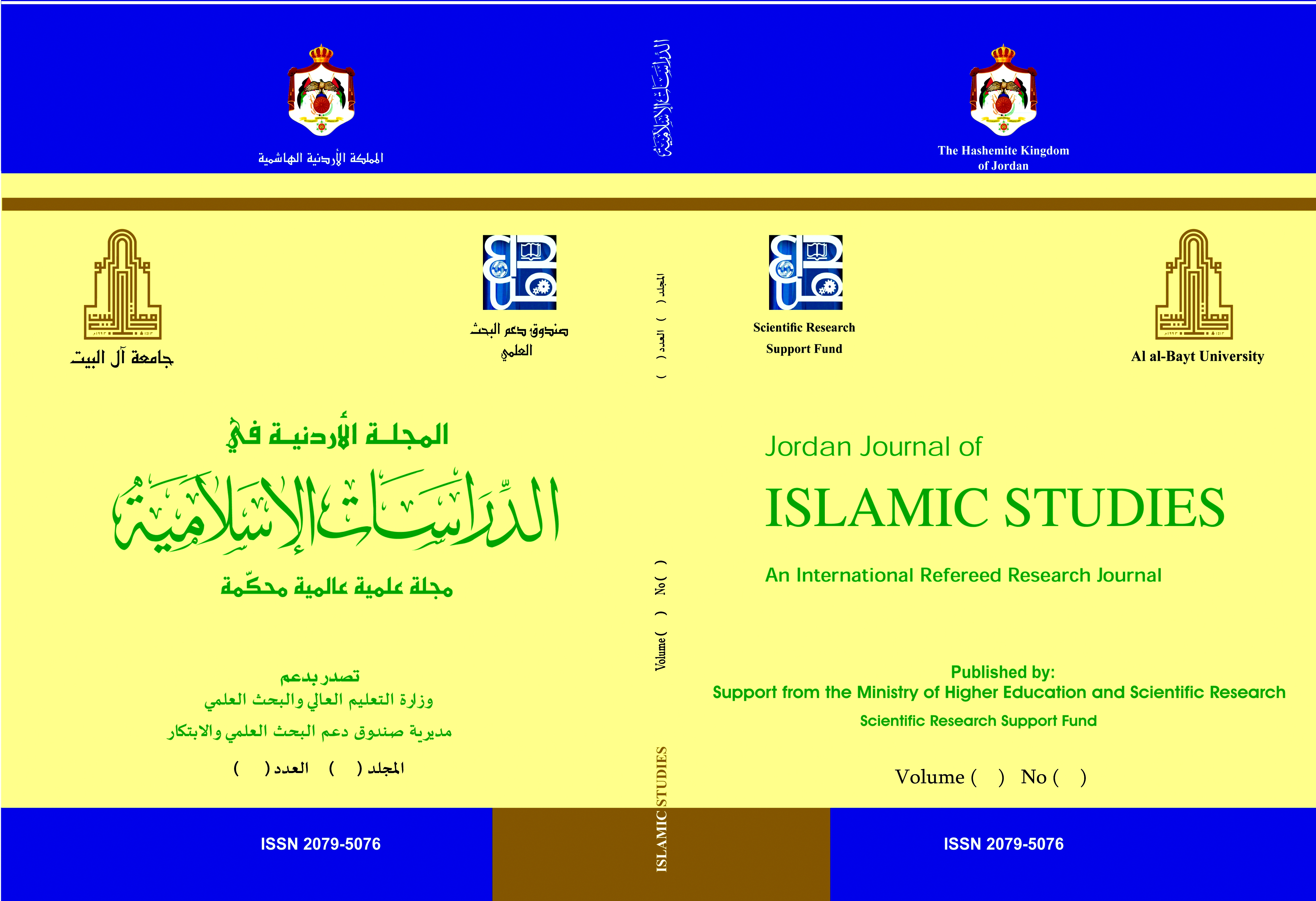Jordan Journal of Islamic Studies

Abstract
The study aimed to discuss the rule; what was forbidden to close and excuse is allowed for the permissible sake, through explaining its meaning and its forms. Further, clarifying the application of the rule and its conditions. The study presented the most important shari evidences for this rule form Quran and Sunna. Additionally. Measurement and intellectual evidence through the places of the shari rules applying this rule.
The study discussed the relationship between this rule and other fiqhi rules such as closing the excuse and opening it due to sake as well as forgiven in means what is not in purposes, and other fiqhi rules.
The study offered the most important fiqhi application of this rule within deals and sales, explaining the modern economical issues deviated from this rule, to reveal the need to measure all what achieves the sake and confirming the validity of Islamic rules for all times and places.
The study concluded with the most important economical effects resulted from applying this rule on the individual and society levels showing the flexibility of shari and its observation for the sake.
Recommended Citation
Obadeh, Ibrahim and Al-Jamhoor, Mosa’id
(2020)
"قاعدة: "ما حُرّم سداً للذريعة أبيح للمصلحة الراجحة" تأصيلها، تطبيقاتها وآثارها الاقتصادية The Rule “What is Forbidden to Ban Excuses of the Bad Deeds is Permissible for the Preponderant Interest”- Rooting, Applications and Economic Effects,"
Jordan Journal of Islamic Studies: Vol. 16:
Iss.
1, Article 14.
Available at:
https://digitalcommons.aaru.edu.jo/jois/vol16/iss1/14

